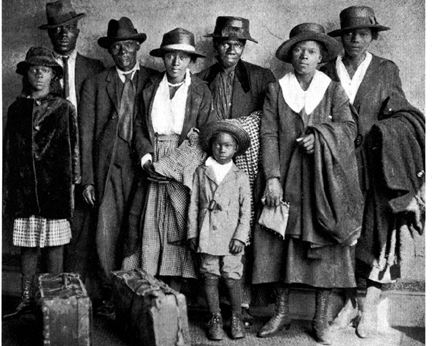History and Environmental Justice: Stories Told and Stories Untold

I really enjoyed this New York Times op-ed about a fight by a historically black community to stop a dirty energy facility from being in their community and how it compared to when the same company proposed building something near Mount Vernon, George Washington’s home (and also a very boring house tour).
There’s a revealing counterpart to this story. In 2018, Dominion proposed siting a similar compressor station on land it owned across the Potomac River from George Washington’s Mount Vernon, home to over 300 enslaved persons at the time of Washington’s death. The Mount Vernon estate launched a “Save the View” campaign that gained national attention, and shortly thereafter Dominion agreed to drop its proposal and look for alternative sites.
Mount Vernon tells the history of America, but so does Union Hill. Environmental justice is a commitment to right the wrongs of our past that persist today.
It’s no coincidence the environmental justice movement was born in the South, when in 1982 an African-American community in Warren County, N.C. failed to stop the siting of a landfill that would contain soil contaminated by PCBs, but birthed a powerful new movement. Union Hill shares its story with Warren County and countless other communities faced with the unjust burden of pollution, from Cancer Alley in Louisiana to Flint, Mich. and its lead-contaminated drinking water. This pattern of injustice, which often afflicts people of color and the poor, will become a more urgent problem as climate change threatens some Americans more than others.
Union Hill would not be the only casualty of the Atlantic Coast Pipeline. The natural gas pipeline would cross steep mountain terrain through two national forests, a national scenic trail and parkway and an endangered species habitat. Homes and farms in its path have been seized through eminent domain. And it would lock Virginia into fossil fuels for decades at a critical moment for climate action, even though the demand for natural gas in the region is likely to fall as the costs of renewable energy and storage technologies continue to fall.
Union Hill would be a devastating casualty, its legacy of enslaved Virginians sacrificed to the modern hub of influence and power in the Commonwealth, reminding us again that we have not righted our past.
Union Hill is as important a marker of the history of Virginia and American as Jamestown, Mount Vernon, and the state’s Civil War battlefields. While Union Hill may not have behind it the resources or political clout of some of Virginia’s more prominent historical sites, it is entitled to the same reverence and respect.
That did not happen in this case. As the unanimous decision by the three-judge appeals court panel found, state regulators “failed” in their “statutory duty to determine the character and degree of injury to the health of the Union Hill residents, and the suitability” of a gas-powered compressor in the community.
How we treat the story and future of Union Hill, and other communities like it, will define our history.
The stories we tell and don’t tell are really important because they are the stories people will respond to or not respond to when a political situation develops such as where to put a dirty energy facility. This is why telling these stories is so important. It’s why digging up lost stories is something historians who care about justice do. It’s why we need to read what real historians write (instead of, say, Ron Chernow)–the stories of everyday Americans and their struggles for justice are simply a lot more relevant and important than mythologizing Alexander Hamilton for modern liberals who want their founding father they can embrace. These stories of struggle and justice can impact real lives.


